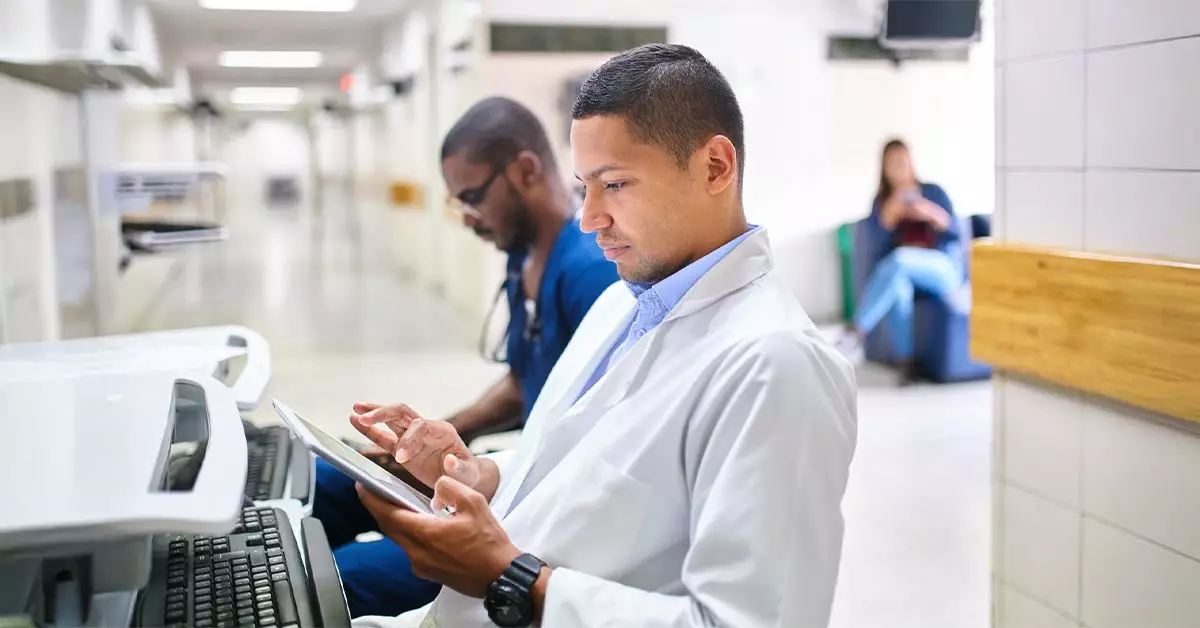Hematologist-oncologists play a vital role in treating complex blood cancers, including acute lymphoblastic leukemia (ALL). This rapidly advancing cancer primarily impacts the blood and bone marrow, resulting in the overproduction of immature white blood cells. The symptoms associated with ALL, such as fatigue, fever, and easy bruising, can severely affect a patient’s quality of life. Consequently, accessing the expertise of specialists in ALL becomes crucial for effective treatment and management of the disease.
The incidence of ALL may be low, accounting for less than 0.5% of cancers in the United States, but the urgency and severity of this condition demand specialized knowledge. Hematologist-oncologists are equipped with the training necessary to navigate the complexities of ALL, providing guidance on treatment options, managing side effects, and setting realistic expectations for recovery. Their expertise not only informs treatment plans but also offers patients clarity and reassurance during a challenging time.
For patients diagnosed with ALL, choosing the right treatment path is paramount. While some patients may find nearby specialists within their community, others may require travel to metropolitan areas for expert care. The decision-making process involves various factors, including the availability of qualified specialists, insurance coverage, and the need for referrals from primary care physicians.
Insurance often dictates treatment choices, with specific networks influencing a patient’s access to certain doctors. Additionally, understanding the referral requirements of one’s health plan is essential for securing timely care. Patients should feel empowered to explore options and consult with their primary care providers to find qualified hematologist-oncologists, particularly in areas where access may be limited.
Resources for Finding Specialists
Several resources can assist patients in identifying qualified hematologist-oncologists. Primary care physicians are often the first point of contact, capable of providing recommendations based on their networks. Community cancer centers frequently have comprehensive resources available for patients, guiding them toward specialists who treat ALL. Additionally, national organizations such as the American Society of Hematology and the American Board of Medical Specialties maintain databases of board-certified hematologists, helping patients connect with qualified professionals.
Leveraging online directories and support organizations, like the Leukemia and Lymphoma Society, can streamline the search process. These resources not only furnish names of potential specialists but can also provide insights into their expertise, treatment methodologies, and patient experiences.
When meeting with a hematologist-oncologist, patients should come prepared with questions that ascertain the specialist’s credentials and experience treating ALL. Inquiring about board certifications, facility accreditations, and the volume of ALL cases treated annually can reveal much about their capability to provide quality care. Furthermore, patients should seek clarity on what to expect from the treatment process, including timelines and follow-up support.
Articulating personal preferences regarding communication is equally important. Prospective patients should address their concerns about treatment expectations, potential side effects, and alternative treatment options. A clear understanding of these elements contributes to building trust in the healthcare relationship.
In instances where immediate treatment is not necessary, pursuing a second opinion can be invaluable. Patients should consider a second opinion if they have doubts about the severity of their diagnosis, if treatment options have not been thoroughly explained, or if the specialist lacks experience in their specific type of leukemia. Such consultations can validate treatment plans or open the door to alternative therapies that may better suit the patient’s needs.
Insurance plans often support second opinions, especially in cases involving significant health decisions. As such, patients should verify their coverage to ensure they can explore the best possible treatment avenues. Obtaining second opinions not only enhances confidence in the chosen treatment path but also empowers patients to make informed decisions regarding their health.
The prognosis for ALL varies based on numerous factors including age, specific cancer subtype, and whether it’s a first-line treatment or a recurrence. Despite its aggressive nature, advances in treatment over the last few decades have led to promising outcomes, with many children experiencing full recoveries. Adult patients have also seen improved remission durations, highlighting the importance of ongoing research and expert medical care in this field.
Hematologist-oncologists are essential in the fight against acute lymphoblastic leukemia. Their specialized knowledge, combined with a network of resources and support, is crucial for guiding patients through their treatment journey. By leveraging available resources, asking pertinent questions, and considering second opinions, patients can navigate this challenging landscape with confidence and clarity, ultimately enhancing their chances for recovery.

